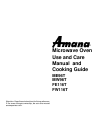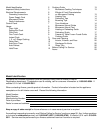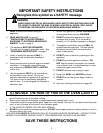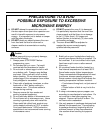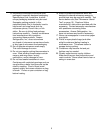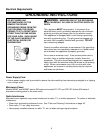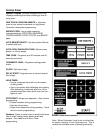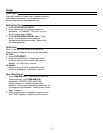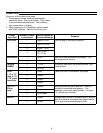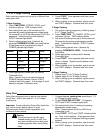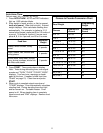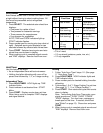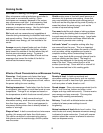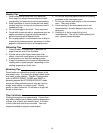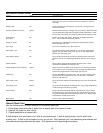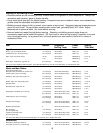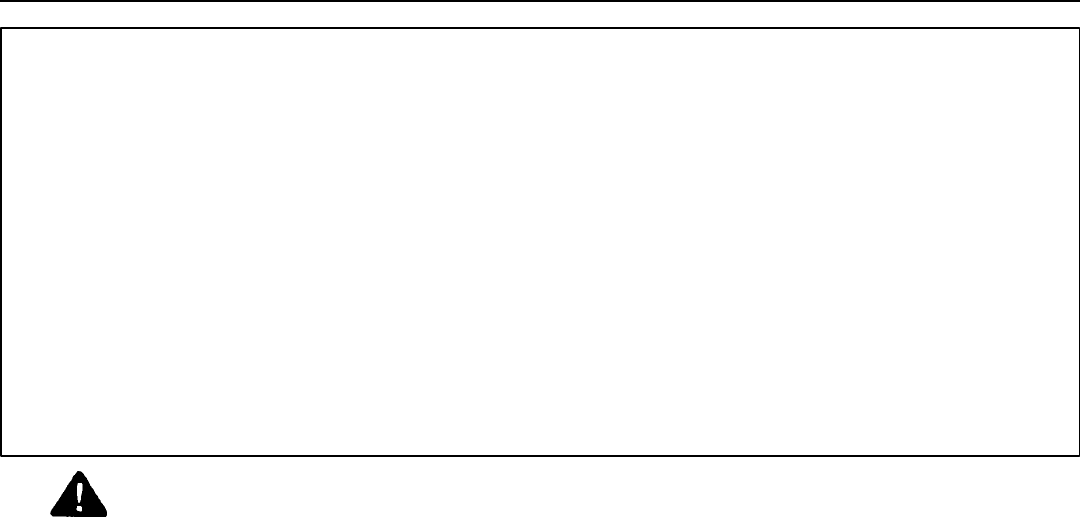
4
(a) DO NOT attempt to operate this oven with
the door open since open-door operation can
result in harmful exposure to microwave
energy. It is important not to defeat or tamper
with the safety interlocks.
(b) DO NOT place any object between the oven
front face and the door or allow soil or
cleaner residue to accumulate on sealing
surfaces.
(c) DO NOT operate the oven if it is damaged.
It is particularly important that the oven door
close properly and that there is no damage
to the: (1) Door (bent), (2) hinges and
latches (broken or loosened), (3) door seals
and sealing surfaces.
(d) The oven should NOT be adjusted or
repaired by anyone except properly
qualified service personnel.
PRECAUTIONS TO AVOID
POSSIBLE EXPOSURE TO EXCESSIVE
MICROWAVE ENERGY
Caution
To avoid personal injury or property damage,
observe the following:
1. Always press STOP/RESET before
programming oven.
2. Do not deep fat fry in oven. Fat could
overheat and be hazardous to handle.
3. Do not cook or reheat eggs in shell or with
an unbroken yolk. Pressure may buildup
and erupt. Pierce yolk with a fork or knife
before cooking. Do not reheat previously
cooked eggs in the microwave oven unless
finely chopped or scrambled.
4. Pierce skin of potatoes, tomatoes, or other
foods with a "skin" before cooking in
microwave oven. This allows steam to
escape during cooking.
5. Remove excess fat from meats and
poultry to prevent spattering.
6. Do not heat baby bottles in microwave oven.
7. Do not home can in microwave oven. Home
canning is generally done with metal lids.
Since metal lids reflect heat, product may
not be heated uniformly to 212°F or above.
Food could deteriorate. USDA extension
specialists do not recommend home canning
in microwave ovens.
8. Briskly stir or pour liquids before heating to
prevent spontaneous boiling or eruption. Do
not overheat. If air is not mixed into a liquid,
liquid can erupt in oven or after removal
from oven.
9. All uncooked foods should be heated to a
final internal temperature of at least 165°F.
Some foods require higher temperatures.
These recommended temperatures kill most
food borne, disease causing organisms.
Some common visual signs that indicate the
cooking temperature has been reached:
• Food steams throughout, not just around
edges.
• Center bottom of dish is very hot to the
touch.
10. If using a microwave popcorn popper, use
according to manufacturer's instructions. Do
not continue to heat after popping has
stopped. Popcorn will scorch or burn. Do
not leave oven unattended.
11. Use only popcorn in packages designed and
labeled for microwave use. Pop according
to package directions, beginning with the
minimum amount of time recommended.
Use caution when handling hot popcorn
bag.



